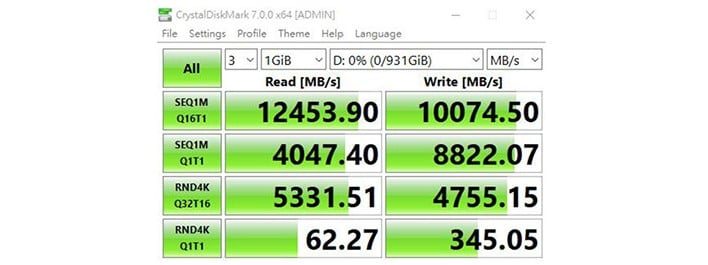Gigabyte Aorus Flashes PCIe Gen 5 SSD That Rips Over 12GB/Sec

Gigabyte designed the SSD in cooperation with Phison, who supplies the controller. The specific controller model is known as the PS5026-E26, and it's an 8-channel flash controller that uses 2400 MT/s 3D TLC NAND along with an LPDDR4 cache. Apparently, this drive is only the beginning for Gigabyte's PCIe 5 SSDs. The manufacturer says that it's already verifying "next-generation NAND flash and components" for a revision of this model with even higher performance.
Obviously, to make use of the Gen5 SSD 10000, you'll need a system with a PCIe 5.0 M.2 socket. That means Intel only, for now, although AMD's Ryzen 7000 family are just around the corner and will support PCIe 5.0 SSDs on some boards. The SSD ships with a copper heatsink that fully encloses the drive, although it can be easily removed if you intend to slot it under a motherboard's "armor."
Gigabyte's press release talks about gaming and streaming, but it's difficult to imagine the consumer workload that can even make use of such astonishing sequential performance. On the other hand, we've never been ones to complain about more performance and a drive like this will probably excel when DirectStorage-enabled games become a thing. What's missing from this announcement are prices and a release date. We wouldn't be surprised if this drive hits the market at the same time as the aforementioned new Ryzen processors.


